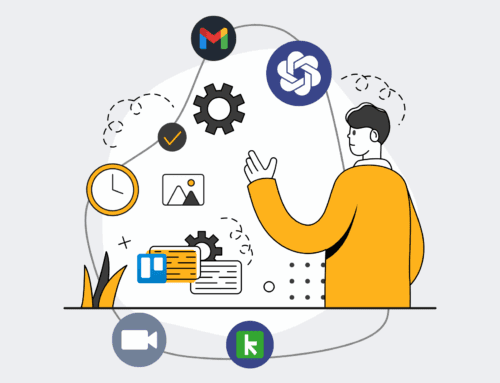Mitigating Risk: Data Security Best Practices for AI Resume Parsers
The landscape of talent acquisition has been irrevocably transformed by artificial intelligence. AI-powered resume parsers, in particular, have emerged as indispensable tools, streamlining the initial screening process, sifting through vast candidate pools, and identifying potential matches with unprecedented efficiency. This technological leap saves HR teams countless hours, reduces human bias, and accelerates time-to-hire. Yet, as with any powerful technology handling sensitive personal data, the integration of AI resume parsers introduces a new frontier of data security challenges. The very efficiency that makes these tools so valuable also concentrates significant risk if not managed with robust security protocols.
For organizations like 4Spot Consulting, which specialize in leveraging automation and AI to optimize business operations, the discussion around AI’s benefits must always be paired with a rigorous examination of its associated risks. We understand that while AI can save 25% of your day by eliminating low-value work, it simultaneously demands a heightened awareness of the data governance implications. Ignoring these security aspects isn’t just a compliance oversight; it’s a fundamental threat to your organization’s reputation, legal standing, and the trust placed in you by job applicants.
The Concentrated Risk of AI Resume Parsing
AI resume parsers ingest a wealth of personal data: names, addresses, contact information, employment histories, educational backgrounds, and often, highly specific skill sets. This data, collectively, paints a comprehensive picture of an individual, making it a prime target for malicious actors. Unlike traditional manual processes where data might be distributed across multiple physical or digital silos, AI parsing centralizes this information, creating a single, valuable repository. This centralization, while efficient for processing, becomes a critical vulnerability if not properly secured. Breaches can lead to identity theft, phishing scams, and severe regulatory penalties under frameworks like GDPR, CCPA, or other data privacy laws, depending on your operational footprint.
Moreover, the very nature of AI introduces unique security considerations. The algorithms themselves, if not robustly designed and continuously monitored, can be susceptible to adversarial attacks, where subtle manipulations of input data could lead to biased outcomes or data leakage. The interconnections between the parser, your applicant tracking system (ATS), and other HR platforms (a prime area for 4Spot Consulting’s OpsMesh framework) create additional pathways for potential vulnerabilities that must be secured end-to-end, not just at a single point.
Establishing a Secure Foundation: Best Practices in Action
Mitigating these risks requires a multi-layered, proactive approach that extends beyond mere technical safeguards. It’s about building a culture of security and integrating it into your operational DNA, similar to how we embed automation for maximum ROI.
Vendor Due Diligence and Secure Configuration
The first line of defense begins before implementation. Thoroughly vet your AI resume parser vendor. Inquire about their data encryption standards (both in transit and at rest), their data retention policies, incident response plans, and compliance certifications (e.g., ISO 27001, SOC 2). Ensure their data centers meet stringent security requirements. Once a vendor is selected, work closely with them to configure the parser securely. This includes role-based access controls, ensuring only authorized personnel can access sensitive candidate data. Consider anonymization or pseudonymization techniques for data not strictly required for initial parsing, minimizing the attack surface.
Data Minimization and Retention Policies
A cornerstone of data security is the principle of data minimization. Collect only the data absolutely necessary for the recruitment process. If certain demographic information is not essential for initial screening, reconsider its immediate ingestion. Furthermore, establish clear, legally compliant data retention policies. Data that is no longer needed should be securely purged. This prevents the accumulation of stale data, which, if breached, could still pose significant risks. Automating these retention and deletion processes, a common element in 4Spot Consulting’s OpsBuild initiatives, ensures consistency and reduces human error.
Robust Access Controls and Employee Training
Even the most secure systems can be undermined by human error or negligence. Implement strict access controls, ensuring that employees only have access to the data required for their specific roles. Multi-factor authentication (MFA) should be mandatory for all systems accessing candidate data. Regular, comprehensive training for HR and IT staff on data security best practices, phishing awareness, and incident response protocols is non-negotiable. Empower your team to be the first line of defense, recognizing and reporting suspicious activities. This proactive approach cultivates a security-aware culture that complements technological safeguards.
Continuous Monitoring and Incident Response Planning
Security is not a one-time setup; it’s an ongoing commitment. Implement continuous monitoring of your AI resume parser and connected systems for suspicious activities, unauthorized access attempts, or anomalies in data flow. Utilize security information and event management (SIEM) tools to centralize logs and detect threats in real-time. Crucially, develop a clear, tested incident response plan. This plan should detail steps for identifying, containing, eradicating, recovering from, and learning from a data breach. A well-rehearsed plan minimizes damage, ensures regulatory compliance, and accelerates recovery, protecting your organization’s reputation.
Beyond Compliance: A Strategic Imperative for HR Leaders
For high-growth B2B companies, data security isn’t just about avoiding fines; it’s about maintaining trust with your candidates, protecting your brand, and ensuring business continuity. As we help clients integrate AI into their HR and recruiting operations, our focus is always on delivering scalable, error-free systems. Part of that scalability means building in robust security from the ground up, not as an afterthought. An unsecured AI resume parser can turn a powerful efficiency tool into a significant liability. By prioritizing data security with the same rigor you apply to revenue generation, you not only protect sensitive information but also reinforce your organization’s commitment to ethical AI deployment and responsible talent management.
If you would like to read more, we recommend this article: The Strategic Imperative of AI in Modern HR and Recruiting: Navigating the Future of Talent Acquisition and Management









